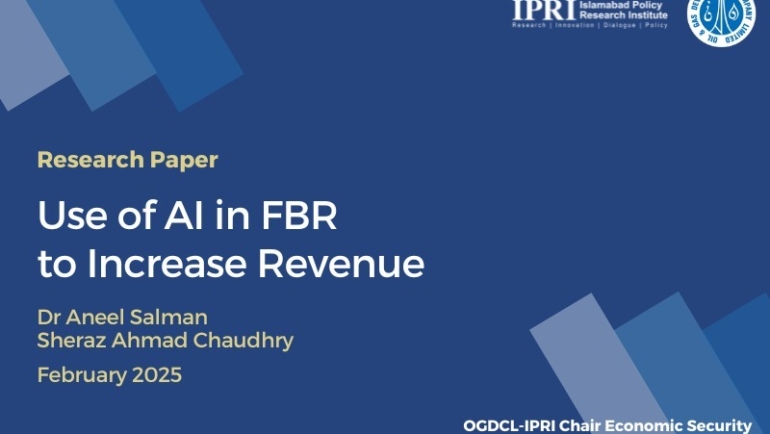This paper explores the transformative capability of Artificial Intelligence in modernising public governance, focusing on its role in overcoming operational inefficiencies in government offices in Pakistan. The potential of AI in bringing about efficiency, reducing costs, and improving service delivery is illustrated through cases such as the e-governance initiative in Estonia. It focuses on digitization as the basis for AI integration to handle repetitive tasks and advanced AI systems for predictive analytics and real time decision making. The paper proposes a phased framework for implementation using the case study of the Chief Commissioner’s Office in Islamabad, starting with high demand public services such as marriage certificates, police verifications, and domicile issuance. This approach underlines the twofold benefits of AI adoption: increased efficiency in administrative processes and sustainable governance.
Noting the challenges in resource constraints, ethical concerns, and data quality issues, this paper provides a more organised policy framework, including the setting up of a National AI Authority to promote public-private partnerships and capacity-building programs for top civil servants. In addition to automating processes, decreasing human effort, and driving innovation, the benefits of AI could also help to attract foreign investments toward Pakistan and position it as a regional leader in AI-driven governance. Actionable policy recommendations include targeted funding for digitization, RPA and AI training for civil servants, and academic-industry collaborations to encourage AI research. The objectives of these measures are to establish a governance framework that is scalable, efficient, and inclusive, which guarantees improved resource allocation, promotes innovation, and increases public satisfaction.
Skip to content
Skip to footer


